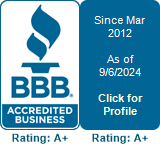The typical IRS Notice 75 states, "We're auditing your [year] Form 1040 - You need to send supporting documentation".
The IRS uses the series of Notices CP75 (CP75A, CP75C & CP75D) for letter audits concerning the Earned Income Credit, The Head of Household filing status, or Dependency Exemptions. They often include Forms 886-H-HOH, 886-H-DEP, or 886-H-EIC with questions for you to answer and documents to obtain or they can attach a separate Form 4564 or Form 886A.
Reason for Notice CP75 A
This conflict occurs with ex-spouses, grandparents, foster parents and other caregivers who claim the dependency exemption (and other benefits). Often, more than one person has claimed the exemption and there is a dispute about who is entitled to the deduction.
Steps for IRS CP75 Audits
In most cases, you must 1st verify that you are entitled to claim the dependent & the corresponding various benefits. The IRS asks for a lot of documentation showing your support of the dependent, which is a very tedious chore. Fortunately, the TaxHelp Audit Defense Program makes it easy with sections devoted to:
- the Dependency & Personal Exemptions,
- the Earned Income Credit &
- the Head of Household filing status.
This is not an audit or a bill but the issues must be proven in exactly the same way. You only have 60 days to respond through the IRS administrative process. The information requested by the IRS is very personal & they often ask for far more than necessary to prove the case or to which they are entitled. Plus, their guidance is practically worthless.
Duty to Prepare
But, you have a duty to prove your case. The IRS will ask where you lived, with whom, how much were contributions to the household & your lifestyle. You must get housing, school, medical, court, agency, & government records to verify your claims. These documents must be prepared in the manner required or the IRS will reject them.
Also, the IRS will not review files that are unorganized & they will likely impose "negligent record-keeping" or "accuracy-related" penalties for poorly presented records.
What to Do
Please look carefully at the Notice CP75 you received from the IRS. If it involves no other issues than the Earned Income Credit, the Head of Household filing status or a Dependency Exemption then you only need the TaxHelp Individual Edition Prep Steps.
To see how the TaxHelpPrograms work see our Advantages page!
Because an audit is legal process attorney guidance is advisable. To make your attorney meeting most productive we have designed Prep Steps for you to follow so the lawyer can create an Action Plan to deal with the IRS.
But, someone must organize your records for the IRS. You can do it or hire a CPA, bookkeeper or attorney at a cost.
Self-Prepare
If you want to save money & self-prepare, the most helpful & least expensive way is for you to arrange and prepare your files but get attorney guidance. Therefore, we have created the Audit Defense page so you can self-prepare for your IRS audit. You are provided with all the video, audio, visual & text guides to get you ready for the IRS. In specific response to Notice 75A, there is a section of the program dedicated exclusively to issues concerning the Earned Income Credit.
It makes more sense for you to organize your records since you understand your business & can get items you need quickly. When you're ready, get legal advice.
Lost Documents
Some people may fear an audit because they didn't keep their records or their records are lost or unavailable. However, unless you used only cash, bank & credit card records can be re-created. And, even if you used a lot of cash, we can get affidavits or use industry standards to get a reasonably negotiated figure. See Lost Documents.
Re-Certification
Even if the IRS denies your claims, you can continue to pursue your case in Appeals or Tax Court. Eventually, if you win, they will send you a Notice CP74 stating you are re-certified for the Earned Income Credit and can freely claim the credit in future years. The may also send you Notice CP76 stating that you will receive your refund.
If You Lose
Or, the IRS may send you Notice CP79 requiring you to complete Form 8862 the next time you file.
If you lose the IRS may forbid you to claim the earned Income Credit for 2 years (Notice CP79A) or 10 years. (Notice 79B) (See also Pub. 596)
Please see the TaxHelp Blog series, "Audit Issues".
Attorney Advice:
At any time, you may contact Mr. Hopkins at TaxHelpLaw for attorney guidance. Follow the Prep Steps for the most productive meeting!







